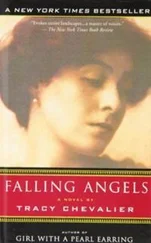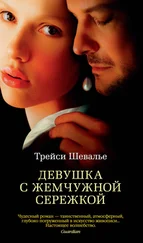They passed dozens of saloons, with men staggering in and out of them, and riding fast up and down the streets like water pouring through a sluice. Robert recognized the greedy, impatient, desperate, careless character of miners on a spree, here to spend their earnings since there was little to do up at the mining camps. They seemed to need to match the speed of their spending with their earning, and had come to San Francisco to drink and whore and gamble ferociously; then, pockets empty, they would clear off back to the camps in the hills and on the rivers in pursuit of gold once more. Robert was not sure it was a good idea for a city to be so full of deluded dreamers.
William Lobb clearly had no interest in the city apart from its docks. He was not a gambler or a drinker, and he had given the few women they’d come into contact with little more than a glance. Indeed, he did not seem to like people much. “This city is a horror show,” he announced as they rode, “but its docks are essential. Two or three times a year I pack up seeds and seedlings and saplings and dry samples to ship to England.”
“Where are we going?”
“Corner of Montgomery and California. I’ve got an arrangement at a boardinghouse where I can store equipment and seeds and plants. Here it is.”
They pulled up in front of a house where a woman was leaning in the doorway, smoking a cigar. Tall and broad-shouldered, with red cheeks and scrubby, colorless hair, she wore a filthy pinafore that managed to make her look less rather than more feminine, and she did not wear a cap or hat or bonnet. There were few women living in California, and one way to do it was to ignore what was expected of you. The rules were different here: there were none. That was why many people were tempted to stay: the strict boundaries set by their families and communities and churches back east were nonexistent here. Robert had met many husbands who had decided not to return to their waiting wives, who reveled in the gambling and the whoring and the freedom.
The woman did not move, but let the men get down from the wagon and come to her.
“Hello, Mrs. Bienenstock,” William Lobb said. “Is there a bed available for this lad? He’s helping me.”
“No vomit on my stairs,” Mrs. Bienenstock directed at Robert. “You get sick inside my house, you’re out.”
Robert nodded; there was no other response to such a statement.
“We’ve got a special consignment,” Lobb continued. “It won’t be here for long-just till I find a steamer heading for Central America.”
Mrs. Bienenstock puffed on her cigar. “The Uncle Sam leaves for Nicaragua in two days. Market Wharf.”
“Not the Nicaragua route. Panama’s more reliable.”
“The Columbus , then. Pacific Wharf in four days.”
“Excellent. We’ll just get these in, then I’ll go down to the docks and sort it out. Thank you, Mrs. B.,” William Lobb added deferentially. Robert suspected his landlady was one of the few people he treated with such respect.
Lobb’s room was at the back of the house, with a north-facing window. It was naturally dim, made darker by black cloth hung over the window, and was stacked with tin cases sealed with wax. Robert looked around the room, baffled. Lobb chuckled. “Here,” he said, breaking open a case so Robert could see the contents: hundreds of labeled packets of plant seeds. “Some hold dried specimens as well,” he explained. “I’ll send all this off to England shortly. Look, the cases are lead-lined to keep out moisture and light so the seeds don’t germinate. That’s why I keep it dark in here too.”
He took Robert next to the small yard at the back of the house, a scruffy patch of land full of scrap and garbage that smelled of shit from the outhouse. Mrs. Bienenstock clearly focused her energy on the inside where the rooms were clean, there were no fleas, and the guests were cowed by her enough to behave. “I keep seedlings and saplings I’ve collected back here,” he said, gesturing to rows of pails of tiny trees. “Mrs. B. waters them for me-easy money for her.”
Once they had added the pails of sequoias to the others out back, and brought the sacks of cones to Lobb’s room, the Englishman left to go back to the docks, and Robert was free to explore the city. The saloons and brothels did not appeal, however; instead he asked Mrs. Bienenstock where he could go to see the ocean.
“Seal Rocks,” she replied as she ran a heated iron across dried sheets in the kitchen. “Take Broad Street west and keep going even when it turns into a track.” She nodded her approval. “You can’t get up to much mischief there!”
Robert was relieved to find that Seal Rocks was well out of the city, away from the miners and the dirt and the noise. There were no buildings there at all, just the beginnings of a fort being built further along the point. Robert and the gray followed the track till it ended and the ground fell away and the Pacific opened out below him like a vast watery sheet reflecting an equally vast sky. Robert had seen the ocean before but it always astonished him. After thousands of miles locked into a land sucked dry of water, here was more water than he could ever imagine in one place.
The gray was not so astonished, but responded to the wide open space as he had at the sight of the sequoias: he neighed and bucked and kicked out until Robert turned him around and led him a few hundred yards inland, where he left him to graze.
He came back and sat on the cliff edge and watched the ocean for over an hour. Off the shore there were large rocks sticking out of the water that looked like giant seals’ heads with their pointy noses facing the sky. Real seals lay on them, lolling in the sun and barking.
Little by little, Robert’s awe at the sight of the ocean was joined by an undertow of sadness. He had reached the end of the country, and was as far from Ohio as he could get; he could go no further. The thought of having to turn around and face east filled him with such guilt and despair that he felt sick with it. Robert had tried to lead an honest life, even when surrounded by dishonest people, but no matter how cleanly he lived now, he knew he had made one mistake that he could never escape. That knowledge would follow him, east or west. All of this running made no difference.
Suddenly there was a roiling and spraying about a mile from shore, and an enormous tail appeared, fanning out and dipping below the water. He gasped, and watched the tail come and go as the whale swam towards the horizon that Robert himself would never reach. It was another reminder that he had to stop now and find a way to live with himself out here, or go back east and face what he had done.

Robert and William Lobb spent the next three days preparing and packing the specimens, mostly out in the yard with the weather fine-though Lobb first spent his own money on a sack of lime for the outhouse so that they could work without gagging.
He demonstrated to Robert how to lay the sequoia cones on a canvas sheet in the sun to let them dry. Each held dozens of tiny flat seeds which would be much easier to transport once shaken from the dried cones. “I’m showing you how, but I’m not going to do that with these cones,” Lobb said. “We can’t wait for these to dry-that’s three weeks of waiting when someone else might send some sequoias off to England before us.”
“Are there other tree collectors?”
“A few. Some I’ve even worked with here and there. Andrews and Parry are all right. I’m not worried about them. It’s Bridges or Beardsley or the Murray brothers who are more likely to beat me to it.”
“Have any of them been up to Calaveras Grove?”
Читать дальше
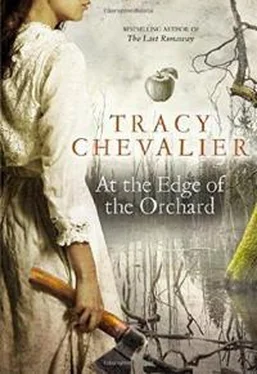


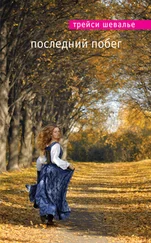



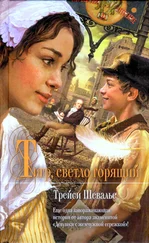
![Трейси Шевалье - Тонкая нить [Литрес]](/books/386177/trejsi-shevale-tonkaya-nit-litres-thumb.webp)

